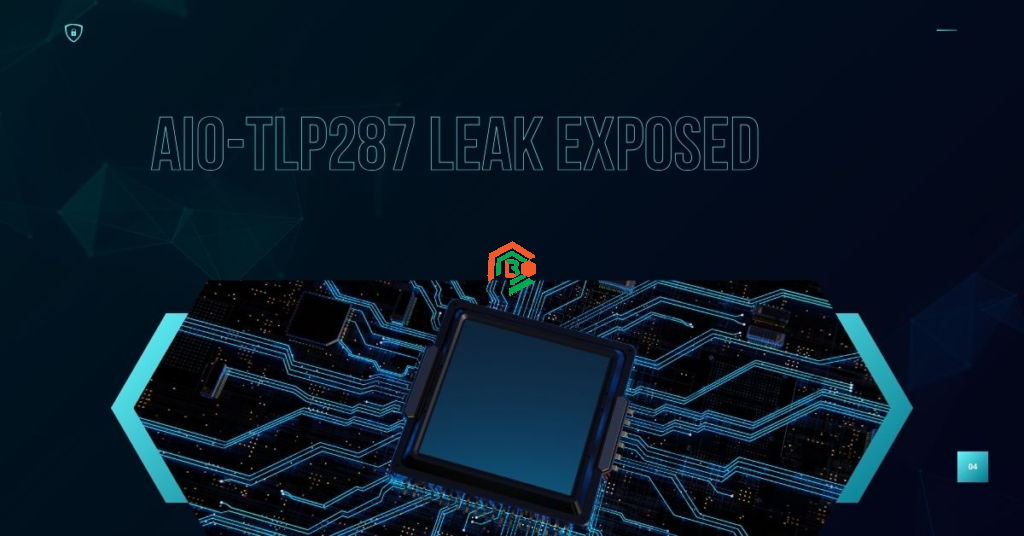In early 2025, a mysterious keyword started trending across search engines and online communities — “thejavasea.me leaks aio-tlp287.” If you’ve come across this phrase, chances are you’re wondering what it means, where it came from, and why everyone is suddenly talking about it. This article breaks it all down for you in simple, easy-to-understand language, and explains everything from how the leak happened to what you should do next.
What is thejavasea.me leaks aio-tlp287?
The keyword “thejavasea.me leaks aio-tlp287” refers to a data leak involving a website called thejavasea.me, which has allegedly released a large set of private or sensitive data, likely bundled into a downloadable file labeled “aio-tlp287.”
The term “AIO” typically stands for “All In One,” suggesting that this leak might contain various types of files — documents, images, logins, personal records — all in a single compressed archive. The code “tlp287” is probably used internally to tag or name the file batch. Based on patterns seen in data breach naming conventions, this could be the 287th set of data published or leaked from that source.
This kind of incident usually sparks attention when it involves personal information like email addresses, passwords, credit card numbers, or private content. And if this was publicly shared, even just visiting the page could potentially get you in trouble — depending on what’s inside.
Why Is Everyone Talking About It?
There are a few big reasons why thejavasea.me leaks aio-tlp287 is getting so much attention:
- Curiosity: People are naturally drawn to leaks, especially when they seem secretive or underground.
- Data Exposure: If you’ve ever signed up for a website or service connected to this data set, your private info could be in the leak.
- Online Buzz: Forums like Reddit, X (formerly Twitter), and even TikTok are full of discussions, warnings, and sometimes even guides on how to access or avoid these kinds of files.
- Fear of Identity Theft: With so many people already victims of online scams, any large leak raises concerns about stolen identities and financial fraud.
Many are typing the exact phrase “thejavasea.me leaks aio-tlp287” into search engines looking for answers, tools to check if their info was included, or even out of pure curiosity. But it’s important to know where the leak came from and what it actually means.
Where Did the Leak Come From?
While the exact origin of the thejavasea.me aio-tlp287 leak isn’t officially confirmed, cybersecurity researchers suspect that the site may be involved in either data scraping, unauthorized server access, or third-party data trading. The leak may have originated from an internal breach, or it could have been compiled from smaller breaches over time.

Most data leaks like this occur when hackers get into poorly secured systems or steal login credentials from phishing attacks, then bundle and release them in forums or on dark web markets.
What is a Data Breach?
A data breach is when someone gets into a system or website and takes information that wasn’t meant to be public. This could be anything from your email and password to your home address, phone number, and even your credit card info. Once that data is out there, it’s hard to control who sees it or what they do with it.
Why Is That a Problem?
When private data gets leaked, it opens the door for cybercriminals to scam people, steal identities, and cause financial damage. Even something as small as an email password can lead to serious problems if it’s reused across other accounts.
For example, if your password was part of thejavasea.me aio-tlp287 leak and you use the same one for Facebook or PayPal, hackers might use it to break in.
Can You Get in Trouble for Looking?
Yes — and this is important. While simply Googling the term “thejavasea.me leaks aio-tlp287” isn’t illegal, downloading or sharing leaked data might be. Depending on the contents of the leak and where you live, accessing this kind of material could violate privacy laws or even criminal codes.
In the U.S., for instance, knowingly downloading stolen data — especially personal or financial data — can be considered illegal under laws like the Computer Fraud and Abuse Act (CFAA). So be very careful.
Is the Website Safe to Visit?
From a cybersecurity standpoint, thejavasea.me is NOT considered a safe website to visit. It might look like a normal page on the surface, but it could contain:
- Malware or spyware that infects your device
- Phishing traps that steal your login info
- Embedded trackers that monitor what you click and type
- Hidden downloaders that begin transferring files without your permission
Even if the site appears to be down now or doesn’t show anything suspicious, that doesn’t mean it’s safe. Hackers often change the appearance of their sites to avoid detection. If you’re not trained in cybersecurity, it’s best to stay far away.
How to Stay Safe Online
If thejavasea.me leaks aio-tlp287 taught us anything, it’s that you can never be too careful online. Here are some simple but powerful ways to protect yourself:
- Use strong, unique passwords for every account. Don’t reuse them.
- Enable two-factor authentication (2FA) wherever possible.
- Don’t click on shady links in emails or messages from unknown sources.
- Update your software regularly, including browsers and antivirus tools.
- Check your digital footprint — search your name or email and see what’s out there.
Being aware of your digital security habits can prevent your data from being part of the next leak.
What Can You Do If Your Info Was Leaked?
If you think your information may have been included in the thejavasea.me leaks aio-tlp287 leak, don’t panic — but do act fast. Taking a few smart steps now can save you a lot of trouble later.

Change Your Passwords
Start with the basics: change the passwords to any accounts that might’ve been connected. If you use the same password on multiple sites, change those too. Make sure to use long, unique combinations that are hard to guess. Consider using a password manager like Bitwarden, Dashlane, or 1Password.
Watch for Weird Activity
Monitor your email, phone, and bank accounts for anything suspicious. If you see strange logins, account resets, purchases you didn’t make, or unusual emails — act fast. Turn on alerts and report anything suspicious to your service provider or bank right away.
Is It Legal to Share Leaked Stuff?
No. Sharing leaked data is illegal in most countries, including the United States. Even if you didn’t hack the data yourself, redistributing private or stolen information violates privacy laws and could lead to fines, bans, or even jail time.
If you see someone sharing links or talking about how to access thejavasea.me leaks aio-tlp287, it’s best to avoid them and report it if needed. Don’t get involved.
What’s Next for thejavasea.me leaks aio-tlp287?
As of now, there’s no official takedown or public statement from the owners of thejavasea.me, but cybersecurity experts are watching closely. Based on similar past incidents, we can expect:
- Investigations from digital watchdogs
- Domain takedowns or blacklisting
- Security researchers analyzing the leak’s content
- New keyword variations or leaks appearing soon
It’s likely this story will keep developing in the coming weeks, especially as more users report being affected.
The Bottom Line
The thejavasea.me leaks aio-tlp287 incident is a reminder of how fragile our online privacy really is. Whether you’re an everyday internet user or a tech-savvy developer, no one is completely safe from breaches — especially when websites or services you trust get compromised.
If you searched this term out of curiosity, that’s okay — but don’t go any deeper than that. Avoid shady sites, protect your data, and stay alert. In a world where digital leaks happen every day, being proactive is the best defense you have.


